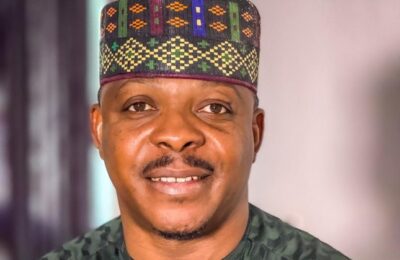In a country where political defections have become a strategy for survival rather than ideology, Nigeria’s 2023 Kogi State election challenged an old assumption, that only a big party can deliver victory. Yakubu Murtala Ajaka, a politician once sidelined by his own party, ran on a lesser-known platform and nearly toppled the ruling establishment. His campaign, powered not by machinery but by trust, represents a new direction in Nigeria’s political consciousness: the rise of personality credibility over party loyalty.
In the shifting landscape of Nigerian politics, where allegiance to ruling parties often outweighs allegiance to the people, one man’s story has quietly redefined the conversation. Yakubu Murtala Ajaka, a Kogi-born politician and businessman, became an unexpected symbol of what politics could look like when authenticity triumphs over access to state resources.
When Ajaka left the All Progressives Congress (APC) in 2023 after what many described as a deeply flawed primary, few gave him a chance.
Contesting under the Social Democratic Party (SDP), a platform barely visible in national headlines, was seen as political suicide. Yet, against all odds, his campaign transformed into a phenomenon that captivated voters across Kogi State and beyond.
Ajaka’s supporters were not bound by political party cards. They were farmers, traders, youth groups, traditional rulers, and civil servants, citizens who saw in him a reflection of themselves. They called him “the people’s candidate.” Across rural villages and urban centers, his message of fairness and dignity resonated deeply in a state long accustomed to transactional politics.
In the final tally, he did not emerge the declared winner. But the outcome told a different story, one that analysts and observers have since described as a moral victory. The number of votes he secured without the backing of government machinery was staggering, and the enthusiasm of his supporters showed a new kind of awakening: Nigerians are learning to separate leadership integrity from political logos.
This shift did not happen in isolation. It mirrors a broader national and continental pattern, where citizens are growing impatient with the endless recycling of party elites. From Peter Obi’s movement in Nigeria’s 2023 presidential race to Alex Otti’s emergence as governor of Abia State under the Labour Party, the trend is clear: the electorate is becoming more personality-driven, issue-based, and less influenced by the old patronage system.
In Ajaka’s case, his strength came not from party structure but from personal capital, built over years of hands-on community engagement. Unlike many career politicians, he had spent time in the grassroots, resolving local disputes, supporting youth initiatives, and sponsoring community projects without fanfare. His brand of politics, rooted in accessibility and empathy, blurred the traditional boundaries between party supporters.
Observers noted that nearly 60 percent of those who voted for Ajaka were members or sympathizers of either APC or PDP, Nigeria’s dominant political blocs. They crossed lines because they believed in the man, not the emblem. This, more than any speech or slogan, explains why his campaign became a movement.
Political scientists often describe this as the “trust dividend”, the unique ability of a credible leader to attract voters beyond tribal or partisan identity. In countries where institutions are weak, trust becomes the real ballot. And in 2023, Kogi voters invested theirs in Ajaka.
But beyond electoral numbers, what stands out is what Ajaka’s rise represents for Nigeria’s democracy. His story exposes the limits of the “defection culture,” where politicians frequently switch parties to align with the winning side. In many cases, defections dilute ideological clarity and weaken institutional loyalty. Yet Ajaka’s experience offers the opposite lesson: that standing firm, even when forced out, can earn enduring respect.
In the weeks following the election, something remarkable happened. Across political divides, even among his rivals, there was quiet acknowledgment that Ajaka had changed the game. Analysts began referring to him as “the conscience of Kogi politics.” Civil society groups cited his campaign as proof that Nigeria’s democracy was maturing, that voters were ready to reward credibility over convenience.
At the national level, Ajaka’s trajectory has not gone unnoticed. Within political strategy circles in Abuja, he is now seen as a key figure whose influence could shape the 2027 elections. His capacity to mobilize real voters, especially in the North-Central region, makes him a sought-after ally for any presidential campaign seeking legitimacy in Kogi and beyond.
President Bola Ahmed Tinubu, known for his pragmatic approach to coalition-building, would find in Ajaka not just a politician but a connector, someone whose credibility bridges the gap between citizens and state. In an era where many politicians rely on social media trends and temporary alliances, Ajaka’s grassroots reach remains organic and durable.
The moral of his story is simple yet profound: political power built on popularity is fleeting; power built on trust is permanent. Ajaka’s near-victory demonstrated that even with limited resources, a man with integrity, consistency, and courage can rewrite electoral arithmetic.
What happened in Kogi is a mirror of what could happen across Nigeria. Citizens are no longer passive observers waiting for party godfathers to decide their future. They are increasingly assertive, scrutinizing candidates’ personal histories, community engagement, and ethical record. This silent revolution is redefining democracy in Africa’s most populous nation.
As 2027 approaches, the lessons from Kogi remain instructive. Parties may still dominate headlines, but individuals like Yakubu Murtala Ajaka will dominate hearts. His resilience against political marginalization and his ability to inspire loyalty without patronage make him one of the most consequential opposition figures of his generation.
To his followers, he represents hope, the idea that good governance is not a privilege reserved for those with access to power brokers, but a right earned by those who listen and serve. To the Nigerian establishment, he is a reminder that political control no longer guarantees electoral success.
In the end, Ajaka’s legacy will not be measured by titles held or offices occupied, but by the paradigm he helped shift, from politics of convenience to politics of conviction. And in that quiet revolution, Nigeria’s democracy may finally find its soul.
– Yusuf, M.A writes from Kogi state.




